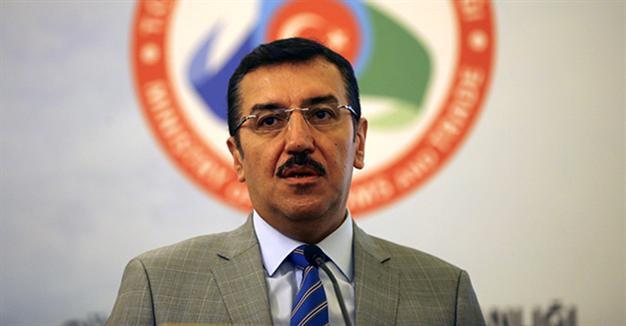Turkish gov’t to ease credit card installment conditions
Aysel Alp - ANKARA

AA photo
The Turkish government may ease the installment conditions for credit cards on a number of products, Customs and Trade Minister Bülent Tüfenkci has said. This easing would likely cover mobile phone and similar device purchases, according to sector representatives.The installments of such purchases by credit card were limited in 2013 to increase private savings and cut the current account deficit.
“Impact analyses have been undertaken now by considering the country’s current account gap. We can decide which products will be covered in this scope after some 25-20 days from the completion of such analyses,” Tüfenkci said in response to a question during a meeting on Aug. 10.
“We believe that the current account deficit is at manageable levels. The domestic demand has already been lively. In this vein, we will not ease the limitations on installments in shopping by credit card to revive the domestic demand, but to make a gesture to the citizens,” he noted, adding the easing moves would have a ceiling.
“We will increase the installments limit to 10-12 months on products for which the current installment limit is six months, but not to 18 or 35 months,” noted the minister.
The head of the Mobile Communication Devices and Information Technologies Business Association (MOBİSAD) said that they visited the banking watchdog to ask for some easing in credit card purchases of mobile devices some four months ago.
“We called for the extension of the limit to four or six months. Officials from the Banking Regulation and Supervision Board [BDDK] said that they would examine the issue,” said MOBİSAD head Sinan Ekşi, adding that such a step would increase sales.
Tüfenkci also said some revisions would be made in regulations in a bid to decrease the gap between fresh fruit and vegetable prices in the field and their market prices.
“With a number of planned revisions, including removing some middlemen in the process and raising packaging and cooling standards, we expect some 30 percent discount in the market prices of such products,” he said.
He also noted that Turkey’s imports to Russia declined by $1 billion in the first seven months of the year compared to the same period of 2015, constituting around 1.2 percent of Turkey’s total exports.
“A fresh start has been made with Russia after the jet crisis, which erupted last November. With the normalization in ties, we expect the problems in the energy, tourism and food sectors will be resolved,” added Tüfenkci.
















